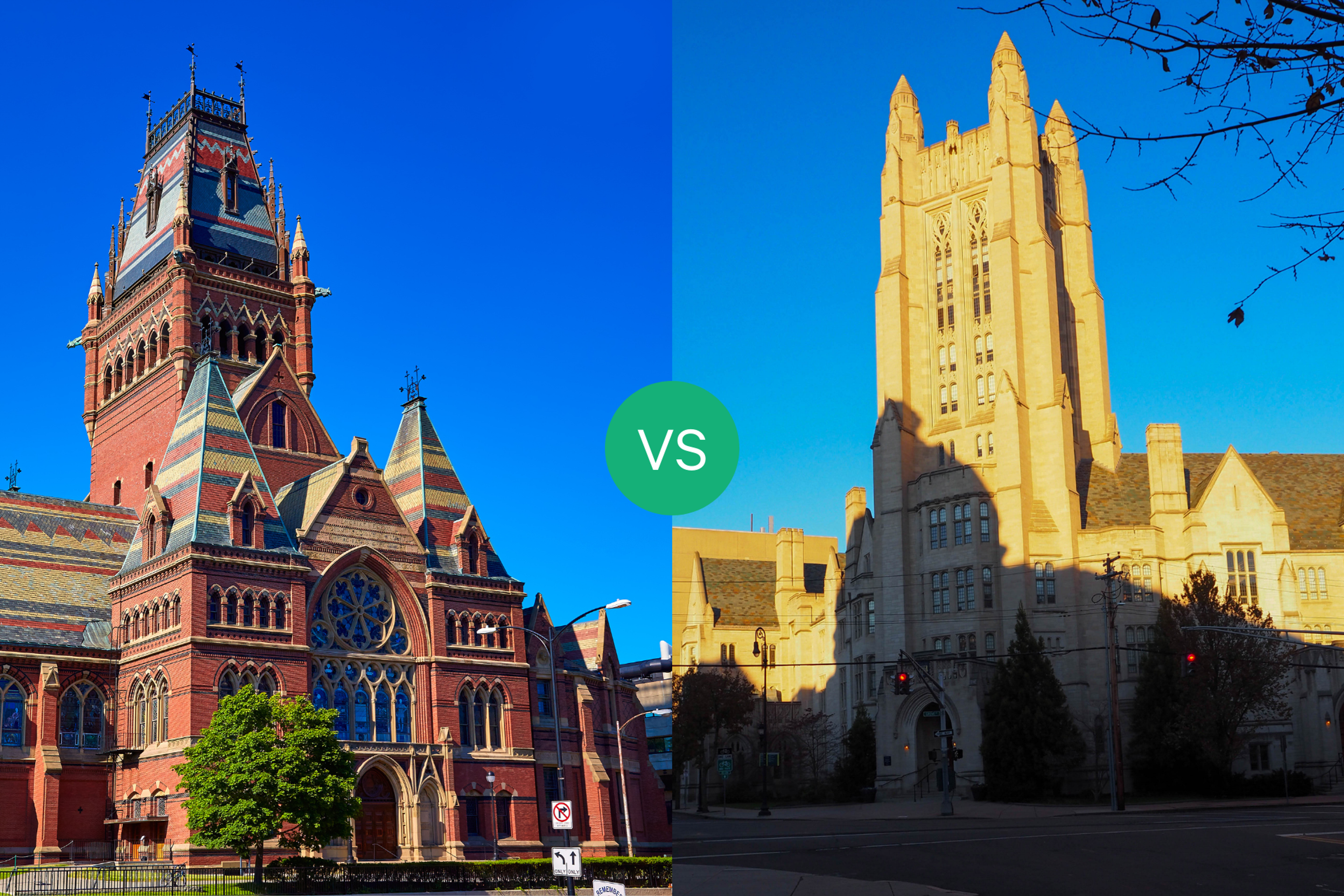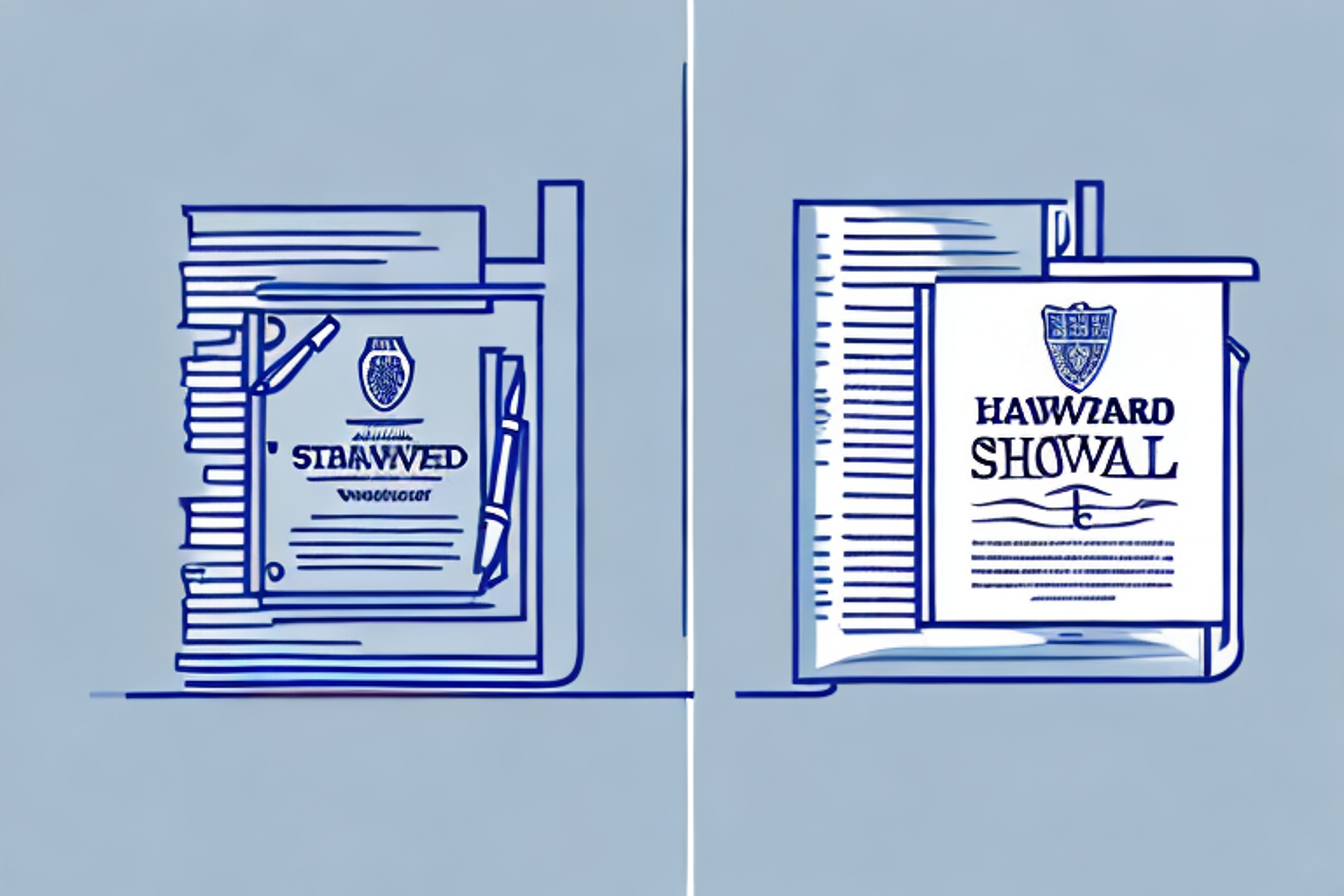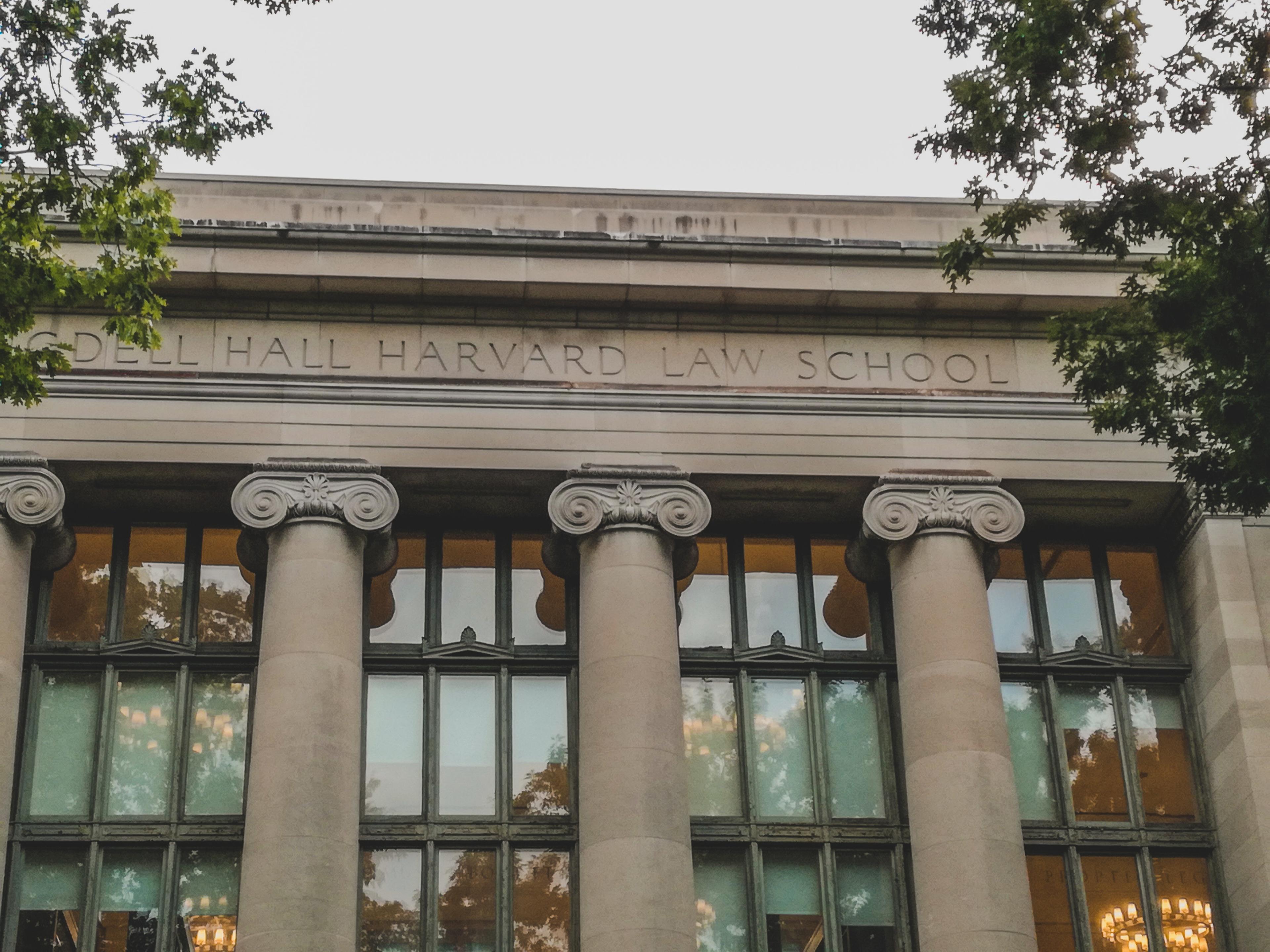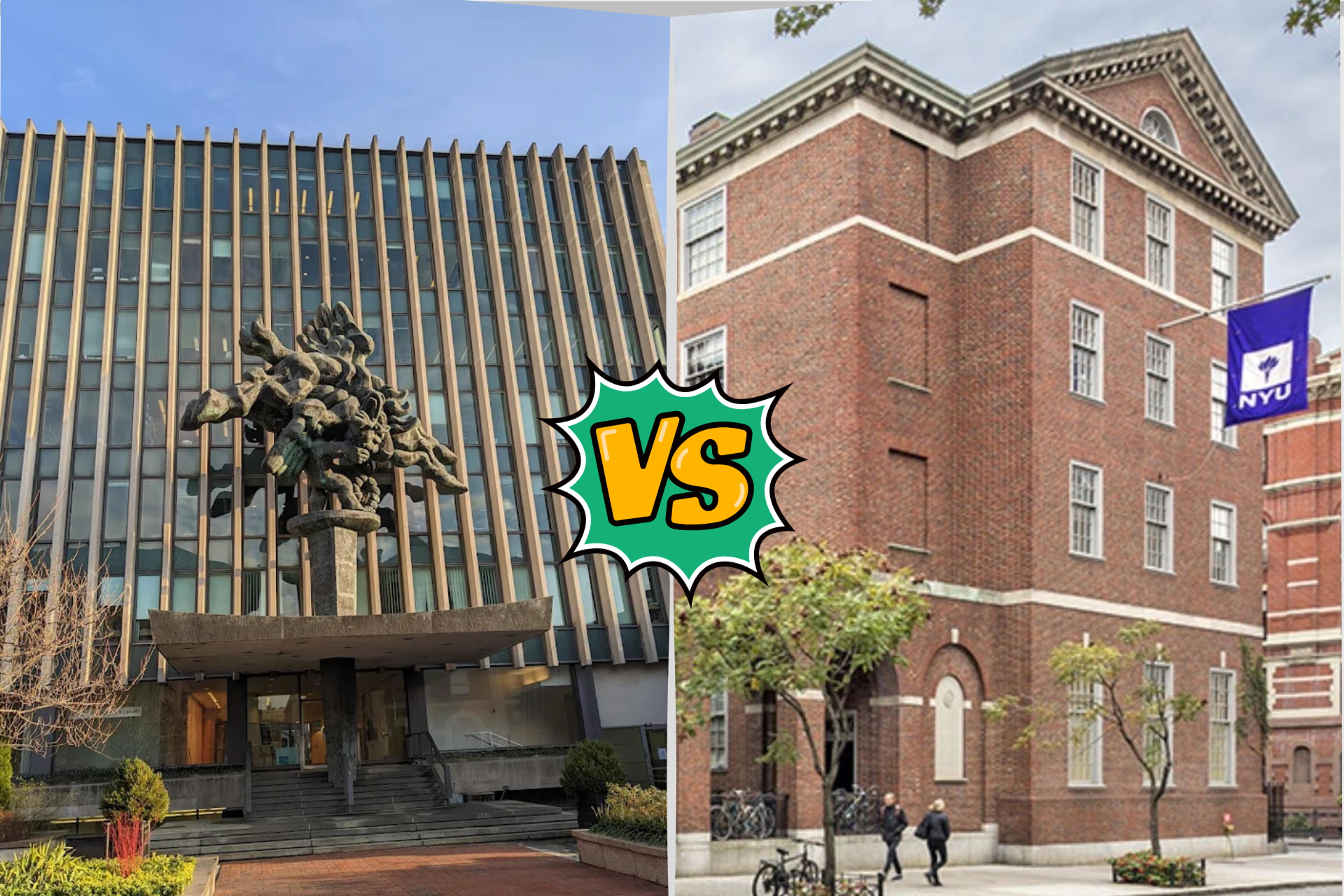Harvard Law School Vs. University of Chicago Law School: An In-Depth Comparison
Are you considering attending law school but can't decide between Harvard Law School and University of Chicago Law School? Look no further! Our in-depth comparison breaks down the similarities and differences between these two prestigious institutions, helping you make an informed decision about your future legal education..
Posted June 13, 2025

Table of Contents
Free Event

Featuring Indrani S.
How To Write Outstanding Law School Application Essays
Starting Thursday, September 11
7:00 PM UTC · 60 minutes

Featuring Indrani S.
When it comes to pursuing a career in law, choosing the right law school can be a crucial decision. Two of the most prestigious law schools in the United States are Harvard Law School and the University of Chicago Law School. Both institutions offer world-class legal education, but they also have unique features and differences that set them apart from one another. In this article, we will provide an in-depth comparison of these two law schools, and help you decide which one is the right choice for you.
History of Harvard Law School and University of Chicago Law School
Harvard Law School was established in 1817 and is the oldest continuously operating law school in the United States. It has an illustrious history, having produced a long list of influential legal scholars, judges, politicians, and other luminaries. On the other hand, the University of Chicago Law School, established in 1902, is a relative newcomer in the field of law education. Nevertheless, it has built a reputation as a highly-cerebral institution that attracts students who are interested in pursuing a rigorous academic program.
Despite their differences in age and reputation, both Harvard Law School and the University of Chicago Law School have made significant contributions to the field of law. Harvard Law School has been at the forefront of legal education for over two centuries, while the University of Chicago Law School has made a name for itself by emphasizing the importance of interdisciplinary studies and theoretical analysis. Both institutions continue to attract top-tier faculty and students, and their graduates are highly sought after by employers in the legal profession.
Curriculum at Harvard Law School vs. University of Chicago Law School
The curriculum at Harvard Law School is designed to provide a broad foundation in legal education by offering courses in several areas of the law, including constitutional law, property law, administrative law, and so on. Students can also choose from a wide range of electives to specialize in specific fields. In contrast, the University of Chicago Law School emphasizes a more theoretical and analytical approach to legal studies. Its curriculum is focused on core subjects such as contracts, property, torts, and civil procedure, and encourages students to develop analytical and critical thinking skills.
Another key difference between the two law schools is the teaching style. At Harvard Law School, the emphasis is on the Socratic method, where professors ask students a series of questions to encourage critical thinking and class participation. In contrast, the University of Chicago Law School uses a more lecture-based approach, where professors present information and students take notes and ask questions at the end of the lecture.
Furthermore, Harvard Law School offers a variety of clinical programs that allow students to gain practical experience in legal practice. These programs include the Harvard Legal Aid Bureau, which provides free legal services to low-income clients, and the Criminal Justice Institute, which allows students to represent clients in criminal cases. The University of Chicago Law School also offers clinical programs, but they are more limited in scope and focus primarily on public interest law.
Teaching Methods at Harvard Law School vs. University of Chicago Law School
The teaching methods at Harvard Law School and the University of Chicago Law School are also different. Harvard Law School relies on the Socratic method, which involves professors posing questions to students in order to challenge their assumptions and encourage them to think critically about legal issues. This method can be daunting for students, but it can also be a highly effective way to develop their analytical skills. In contrast, the University of Chicago Law School uses a more collaborative approach to teaching, with professors and students engaging in open debates and discussions to explore legal concepts in depth.
Another difference between the teaching methods at these two law schools is the use of technology in the classroom. Harvard Law School has embraced technology and uses it extensively in the classroom. Professors use online platforms to share course materials, assignments, and readings with students. They also use multimedia tools to enhance their lectures and engage students in interactive discussions. On the other hand, the University of Chicago Law School has a more traditional approach to teaching and does not rely heavily on technology in the classroom.
Furthermore, the assessment methods used by these two law schools are also different. At Harvard Law School, students are evaluated based on their performance in class participation, written assignments, and exams. The exams are usually closed-book and require students to apply legal principles to hypothetical scenarios. In contrast, the University of Chicago Law School uses a more flexible approach to assessment, with professors having the discretion to choose the assessment methods that best suit their teaching style and course objectives. This may include take-home exams, research papers, or oral presentations.
Faculty at Harvard Law School vs. University of Chicago Law School
Both Harvard Law School and the University of Chicago Law School boast of highly qualified and accomplished faculty members. Harvard Law School has a faculty of over 100 full-time professors, many of whom are internationally renowned for their scholarship and expertise. The University of Chicago Law School has a smaller faculty but is equally distinguished, with many of its professors having earned accolades such as Nobel Prizes and MacArthur Fellowships.
Student Body at Harvard Law School vs. University of Chicago Law School
Harvard Law School is known for having a diverse student body that includes students from different parts of the United States and around the world. Its students are also highly accomplished, with many having excelled in their undergraduate studies and having a wide range of extracurricular interests. Similarly, the University of Chicago Law School is known for attracting intellectually curious and creative students who thrive on a rigorous academic program.
Campus Life at Harvard Law School vs. University of Chicago Law School
Harvard Law School is situated in Cambridge, Massachusetts, and boasts of a beautiful campus that exudes academic excellence. Its campus has numerous facilities, including state-of-the-art lecture halls, libraries, and student lounges. The university also has a vibrant social scene, with numerous clubs and organizations that cater to different interests. On the other hand, the University of Chicago Law School is situated in the Hyde Park neighborhood of Chicago and has a more urban and cosmopolitan feel. The campus is known for its architectural styles, including Gothic Revival and Brutalist designs.
Facilities and Resources at Harvard Law School vs. University of Chicago Law School
Both Harvard Law School and the University of Chicago Law School offer world-class facilities and resources to their students. Harvard Law School boasts of an extensive library system that is one of the largest law libraries in the world. It also has numerous research centers, including the Berkman Klein Center for Internet & Society and the Petrie-Flom Center for Health Law Policy, Biotechnology, and Bioethics. The University of Chicago Law School, on the other hand, has a law library that is among the top 15 law libraries in the United States. It also has numerous research institutes, including the Coase-Sandor Institute for Law and Economics and the Becker Friedman Institute for Research in Economics.
Career Opportunities for Graduates from Harvard Law School vs. University of Chicago Law School
Harvard Law School and the University of Chicago Law School provide their graduates with excellent career prospects in the legal industry. Graduates from Harvard Law School can expect to secure high-paying jobs in top law firms, corporations, and non-profit organizations. They can also choose to pursue careers in academia, government, or public interest work. Similarly, graduates from the University of Chicago Law School have access to a wide range of career opportunities. Its graduates are highly sought after by employers for their analytical and critical thinking skills, and many end up working in prominent roles in the legal industry.
Tuition Fees and Financial Aid at Harvard Law School vs. University of Chicago Law School
Both Harvard Law School and the University of Chicago Law School are expensive institutions, with tuition fees that exceed $60,000 per year. However, both schools offer generous financial aid packages to their students, including scholarships, grants, and loans. Harvard Law School has a need-based aid program that covers the full cost of attendance for many students from low-income families. Similarly, the University of Chicago Law School offers merit-based scholarships to its students, as well as need-based aid to those who require financial assistance.
Admission Requirements and Application Process for Harvard Law School vs. University of Chicago Law School
Admission to both Harvard Law School and the University of Chicago Law School is highly competitive. To be considered for admission, applicants must have excellent academic credentials, including high grades in their undergraduate studies and high scores on standardized tests such as the LSAT. They must also demonstrate a keen interest in pursuing a legal career and possess strong writing and analytical skills. The application process for both schools includes the submission of transcripts, letters of recommendation, essays, and a personal statement.
Alumni Network and Reputation of Harvard Law School vs. University of Chicago Law School
Harvard Law School and the University of Chicago Law School have both produced a long list of distinguished alumni who have made significant contributions in the legal industry and beyond. Harvard Law School alumni include several United States Presidents, Supreme Court justices, senators, and CEOs of major corporations. Similarly, the University of Chicago Law School has produced several Nobel laureates, governors, and judges. Both schools have a strong reputation in the legal industry and are highly regarded by employers, academics, and other stakeholders.
Pros and Cons: Which is the Better Choice for You?
Determining which law school is the better choice for you ultimately depends on your individual needs, preferences, and goals. Harvard Law School is an excellent choice if you are looking for a broad legal education that emphasizes practical skills and offers a diverse student body. It also provides abundant resources and career opportunities to its graduates. On the other hand, the University of Chicago Law School is ideal if you are looking for a more theoretical and analytical approach to legal studies and desire a smaller, more intimate academic environment. It is also an excellent choice if you are interested in pursuing an academic career or engaging in public interest work.
Conclusion: Making the Right Decision Between Harvard and UChicago's Programs
In conclusion, both Harvard Law School and the University of Chicago Law School offer excellent legal education programs that provide students with the skills and knowledge needed to succeed in the legal industry. They have unique features and differences that make them suitable for different types of students. In making your decision, it is important to consider your individual needs, preferences, and goals. It is also essential to consult with legal professionals, alumni, and other stakeholders to gain a better understanding of the schools and their reputations.











